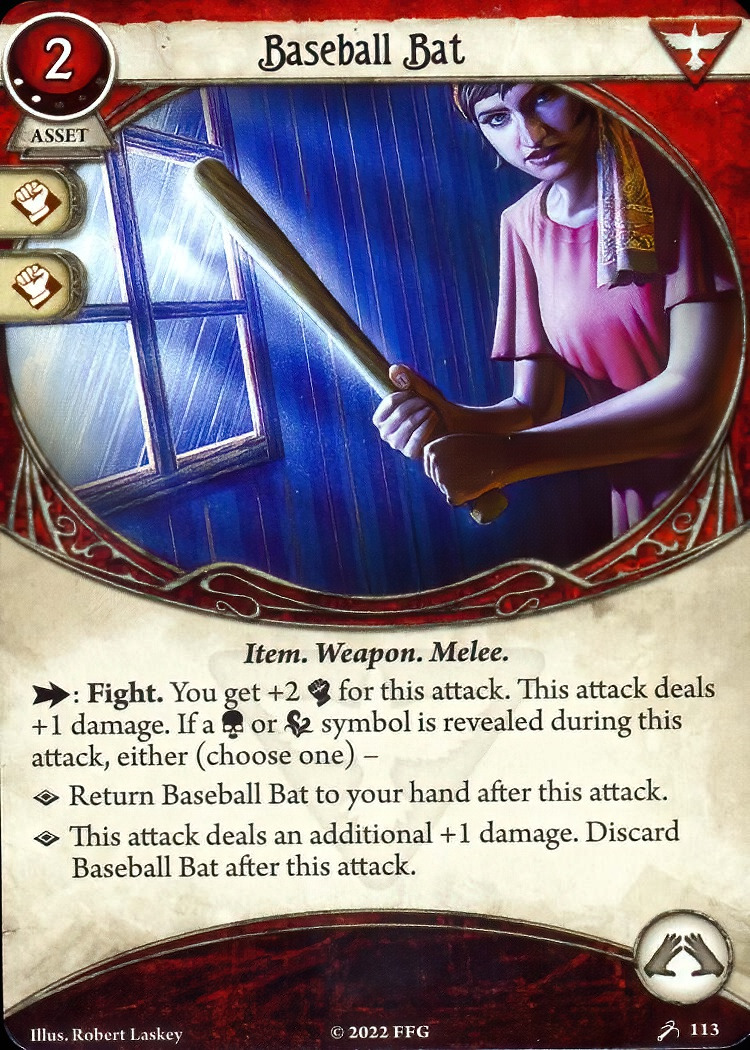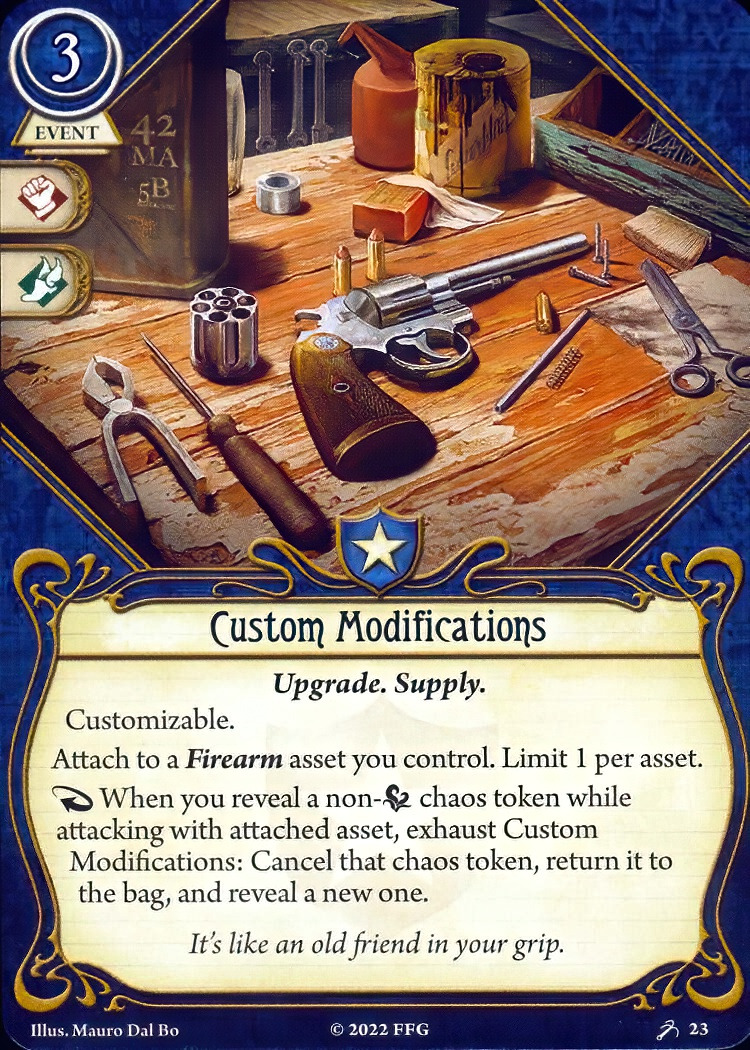
The lv0 Baseball Bat has always been a really solid weapon. +2 Combat, + 1 damage, and unlimited* uses at only 2 resources is an insane bargain, even with 2 hand slots. Of course, it's not really unlimited, since it can break on any attack. But Survivor's have enough flexible recursion that if it does break, it's easily retrieved again. As long as you don't do like 2-3 attacks every turn, it should last you the entire game. A perfect weapon for a fighter on the side (or William Yorick).
But that's kinda were its main drawbacks surface. A flex investigator usually wants to keep that second hand free for clues or other support. And this lv2 version doesn't really fix that problem. Instead though, it fixes the other problem: it makes it more reliable for main fighters. You don't have to waste too many recursions on this one as you can choose to just return it to your hand, or if you have plenty of recursion left, you can still discard it for that extra damage, and most enemies will be defeated by that single hit, giving you time to retrieve it.
Ultimately, the argument you have to make as to whether this is a good upgrade or not is if you believe it's worth investing XP towards a backup plan for a particular situation you're kinda hoping is not going to occur too often anyway. Otherwise, you just take/keep the lv0 version which - if you're lucky - does the exact same thing (and can actually be more flexibly be retrieved), and invest your XP towards something that's certainly gonna be useful whenever you draw it.
Also, can I just say it's kinda amusing that of all items, it's not the Lockpicks, the Thieves' Kit, the Hawk-Eye Folding Camera, Darrell's Kodak, Patrice's Violin, Jim's Trumpet, the Flute of the Outer Gods, the Dowsing Rod or any book that requires 2 hands; it's a freaking baseball bat.




